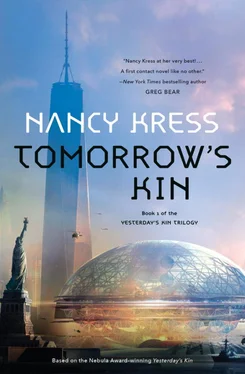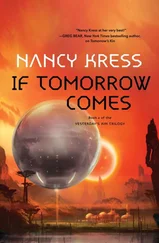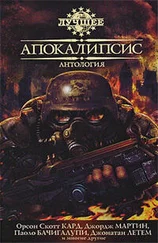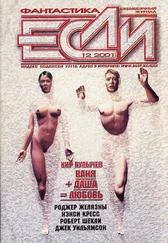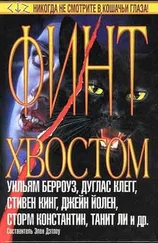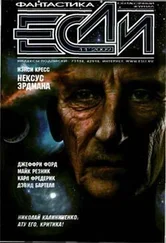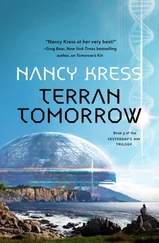“If you say so.” Judy ground the cigarette onto the concrete floor, left it there, and walked off.
Marianne picked up her laptop and went to her room. All four children waited there and Judy was right: They looked healthy in a wild, hectic sort of way. Two parkas lay bunched up on the table. One squeaked.
“Mice!” Jason cried. “Grandma, we got to show you something!”
Six pups of Mus musculus , two of them dead and the other four not looking good. A dead doe with thin and patchy fur lay stiffly in what looked like a convulsive position. No blood or other evidence of predation. She said as calmly as she could, “Did you touch the mice? Any of you?”
“No!” Jason said proudly. “I told everybody to pick them up with their clothes!”
Colin, looking more troubled, said, “Can you make the other babies stay alive?”
“I don’t know, honey. Probably not.” Most diseases did not jump species. But some could: rabies, avian flu, MERS. And rodents could be carriers of human diseases without being affected themselves, although these mice certainly had been. So not hantavirus, not bubonic plague, not a lot of things. Probably just a mouse disease, something else that, if it spread, would again complicate ecological recovery.
“I want you all to go take a good shower, with lots of soap. Wash your hair. Don’t put the same clothes on again. Just in case you might get whatever disease the mice have, okay? Let’s do that now.”
Ava, staring at the mice, said, “I don’t want to die.”
“Nobody’s going to die, honey. I promise.”
Colin, focused on his main concern, said, “But can you make the babies well?”
“I don’t know, Col. We’ll try.”
He stuck out his lower lip. “The other mouse was well. It ran fast.”
“What other mouse?”
“The other one. The striped one.”
There should be no striped mice in this part of Pennsylvania. She said, “You can draw me a picture later. First, a shower.”
Marianne put Ava in her own shower and the three boys, one after the other, in theirs, carefully bagging their clothes in plastic and giving Ava some of Colin’s, which fit her skinny little body well. Who had been looking after Ava since her mother went off-site for plastic surgery? Marianne felt guilty that she hadn’t even asked. Stubbins must have found someone; he always did.
And what of Luke, now that Marianne would be taking her grandchildren away with her?
She pushed that thought aside for now. She didn’t even have a position at the college yet. When the kids were clean and dry, the announcement came over the PA—Lyme disease had stricken a staff member. Everyone would be vaccinated, purely as a precaution.
Allison Blake’s symptoms, as described by Judy, didn’t sound like Lyme disease, which was tick-borne. Marianne examined the mouse pups, dead and alive. None of them carried ticks. And Lyme disease did not kill M. musculus .
Colin brought her the drawing he’d been working on while Ava, Luke, and Jason played something noisy on their Nintendo. Colin had always been an exceptionally good artist for his age. He’d used his colored pencils and worked carefully.
Marianne took the picture and her spine stiffened as if she’d never move again.
“What is it, Grandma? Why do you look like that? Is that a bad mouse? Did it trap those angry people we heard down in the cave under the woods?”
* * *
“Marianne, it’s the middle of the night! What’s happened? You look—Come in!”
Harrison stood frowzy and alarmed at the door of his—once their—apartment in the secure enclave near Columbia. She’d insisted that the gate guard phone him, just as she’d insisted that the chopper pilot take her immediately to Ryan’s home because her son had tried to commit suicide. The pilot had of course checked with Stubbins, who’d okayed the trip. Marianne would feel guilty later about using Ryan’s illness like that. The chopper departed and the cab she had waiting at Oakwood Gardens drove at crash-worthy speed south to New York.
“You’re the only one I can trust, Harrison. There’s something going on at the Venture building site and—”
He said sharply, “The kids?”
“Okay. I left them with Judy. This is—”
“Who’s Judy?”
She’d forgotten his methodical, careful way of assessing a situation: dig out all the facts, arrange them in rows, study them. It steadied her. You didn’t win a Nobel Prize with wild assumptions, nor with excesses of either trust or paranoia. She had always admired Harrison’s mind, and now she needed it.
“Judy is a friend, a physicist at the site. I need to tell you all of this, but first let me show you some data points. Dead mice and a picture.”
He looked at both. He said, “That’s Apodemus agrarius, the striped field mouse. It’s not found in the United States.”
“It is now,” she said grimly. Another invasive species. “And it carries Korean hemorrhagic fever with renal syndrome. You remember that German scientist did the initial work on HFRS infecting Mus musculus, probably from Apodemus, and then the American team led by Samuel Wolski extended it.” From her bag she drew the six dead, plastic-wrapped pups.
Harrison studied them. “I’d need to do lab work on these, of course. Do you have live specimens?”
“Not anymore. Harrison, there’s a woman at the Venture site ill from what I think may be HFRS. The rest of us have been vaccinated, but we were told it’s for Lyme disease.”
“Why do you think it wasn’t? And that whatever killed these mice is in any way related to your sick woman?”
“I can’t know for sure. But I brought you a vaccine sample—I stole it, actually.” She’d pretended she couldn’t breathe, sending the nurse out the room to summon a doctor, and had pocketed a vial of vaccine.
He frowned and ran a hand through his thinning hair in a gesture she remembered well. “I can do tests, of course, Marianne, but the vaccine for Korean hemorrhagic fever isn’t even available in the United States. They use it extensively in China and Korea, but it isn’t FDA approved.”
“That wouldn’t even slow down Jonah Stubbins.”
“Stubbins?” Harrison grimaced. “No, probably not. But still… the disease is transmitted through inhalation of aerosolized rodent urine or feces. Transmission rates aren’t high with proper pest control.”
“That’s another thing I want you to investigate,” Marianne said. “To find out if the virus has been genetically altered to go airborne.”
“Marianne—why on Earth would anyone—”
“Not on Earth,” she said. “On World. As a weapon, or a threat of weapon. Find out. Please.”
S plus 6.5 years
Everything was bad.
The mice all got dead. Everybody had to get a shot in the arm, which hurt, and Colin felt sick for a whole day after his. Grandma said they had to leave the spaceship camp, her and Colin and Jason, and Colin didn’t want to go. Luke wasn’t going and Ava wasn’t going—they got to live here. But Ava wasn’t here now because she had to fly with Mr. Stubbins someplace for some more of those stupid tests. Two weeks had gone by since Grandma told them about leaving, and Ava had been gone that whole time.
“Everything’s shit,” Colin said, trying out the forbidden word. He only did that because Grandma had left her laptop to go to the bathroom, while Jason and Colin did math on their tablets and Luke struggled to read something to himself in the corner. His lips moved. They were the only ones in the mess hall because it wasn’t time to eat and anyway why weren’t they in their own room where they usually did lessons? Maybe because Grandma looked a lot at her laptop.
Читать дальше
